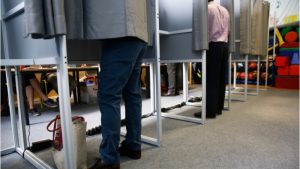State and local agencies are faced with a perfect storm that is driving them straight to the cloud. With the Federal government mandating IT modernization across the Federal landscape and the increased need for improved citizen services due to the ongoing pandemic, state and local governments are turning to cloud capabilities and exploring their migration options to keep pace. But not all clouds are created equal, and government entities face many barriers on their journey to the cloud. MeriTalk recently sat down with Jason Wicker, lead architect, government services, and Joe Nanus, senior state and local government and education sales lead, at Rackspace Technologies to discuss how to overcome those barriers by working with a cloud advisor broker to save costs, support technology teams, and accelerate the move to the cloud.
San Jose, Calif., Mayor Sam Liccardo has tapped Clay Garner to be the city’s new chief innovation officer and director of the Mayor’s Office of Technology and Innovation (MOTI).
The College Board announced today that its SAT suite of assessments will be offered fully digital in the United States by 2024. The decision comes after the College Board piloted a digital exam in both the United States and internationally in Nov. 2021 amid the COVID-19 pandemic.
The University of Wisconsin-Madison (UW-Madison) will use artificial intelligence-enabled walkthrough scanners to screen students, faculty, and visitors for improved campus safety.
The New York State Department of Labor (DoL) announced the launch of a new Twitter account to improve accessibility for Hispanic New Yorkers.
Over the past several months, the United States has experienced many cyberattacks to large cities and small towns. These attacks, Secretary of the Department of Homeland Security (DHS) Alejandro Mayorkas told mayors across the country indicate that cities across the United States need to identify a cyber leader regardless of the size and sophistication of the infrastructure to remain vigilant about cybersecurity.
The California Department of Technology (CDT) is pushing back strongly against a new report from the California State Auditor (CSA) that finds the California CIO’s office has provided inadequate oversight of the state’s information security status.
Massachusetts Gov. Charlie Baker and Lt. Gov. Karyn Polito filed legislation seeking $4.991 billion in capital funds to support core improvements in the state’s cybersecurity, public safety, and workforce skills, among other priorities.
The Northshore School District in Washington state is asking voters in the upcoming Feb. 8 election to approve two new levies and one bond, which would total roughly $700 million of new funding for the district.
Rhode Island’s Department of Environmental Management (DEM) is launching a new website that will serve as a one-stop-shop where Rhode Islanders can obtain licenses, permits, and tags for fishing, hunting, and boating.













